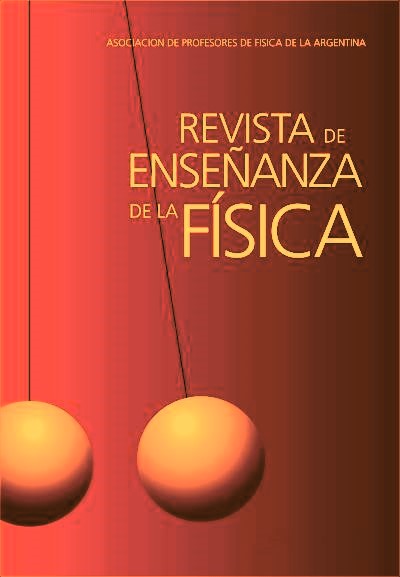Discussions among students that solve questions of physic and confidence in their own answers
DOI:
https://doi.org/10.55767/2451.6007.v36.n1.45303Keywords:
Peer Instruction, Science Education, Physics teaching, Teaching and learning among studentsAbstract
In this paper we present the results of a research in which we investigate the use of a teaching and learning method known as Peer Instruction (PI). The context of the research was an introduction course to physics. PI is a method in which students are encouraged to explain their understanding about conceptual issues to their colleagues and can be confronted with the understanding of their peers. Our research problem was: do student discussions increase the number of students who choose the right answer and affect the confidence level of these people in their answers? The data we obtained show a remarkable increase in the number of right answers and a very significant effect of peer instruction on students' confidence in their answers.
References
Araújo, I. S., & Mazur, E. (2013). Instrução pelos colegas e ensino sob medida: uma proposta para o engajamento dos alunos no processo de ensino-aprendizagem de Física. Caderno brasileiro de ensino de física, 30(2) 362-384.
Brooks, B. J., & Koretsky, M. D. (2011). The influence of group discussion on students’ responses and confidence dur-ing peer instruction. Journal of Chemical Education, 88(11), 1477-1484.
Campos, E., Tecpan, S., & Zavala, G. (2021). Argumentación en la enseñanza de circuitos eléctricos aplicando aprendi-zaje activo. Revista Brasileira de Ensino de Física, 43, e20200463.
Crouch, C. H., & Mazur, E. (2001). Peer instruction: Ten years of experience and results. American journal of physics, 69(9), 970-977.
Hake, R. R. (1998). Interactive-engagement versus traditional methods: A six-thousand-student survey of mechanics test data for introductory physics courses. American journal of Physics, 66(1), 64-74.
Kola, A. J. (2017). An Investigation of Incorporating Dialogical Argumentation into Peer Instruction (PI) for Pre-Service Teacher Learning of Current Electricity. Üniversitepark Bülten, 6(1), 7-19.
Paula, H. F. & Salema, C. S. (2023). Avaliação de um recurso criado para estimular a aprendizagem entre estudantes. Revista Interdisciplinar Sulear, 6(14), 45-60.
Smith, M. K., Wood, W. B., Adams, W. K., Wieman, C., Knight, J. K., Guild, N., & Su, T. T. (2009). Why peer discussion improves student performance on in-class concept questions. Science, 323(5910), 122-124.
Tullis, J. G., & Goldstone, R. L. (2020). Why does peer instruction benefit student learning? Cognitive research: princi-ples and implications, 5, 1-12.
Downloads
Published
Issue
Section
License

This work is licensed under a Creative Commons Attribution-NonCommercial-NoDerivatives 4.0 International License.
Aquellos autores/as que tengan publicaciones con esta revista, aceptan los términos siguientes:Los autores/as conservarán sus derechos de copiar y redistribuir el material, bajo los términos estipulados en la Licencia de reconocimiento, no comercial, sin obras derivadas de Creative Commons que permite a terceros compartir la obra bajo las siguientes condiciones:
- Reconocimiento — Debe reconocer adecuadamente la autoría, proporcionar un enlace a la licencia e indicar si se han realizado cambios. Puede hacerlo de cualquier manera razonable, pero no de una manera que sugiera que tiene el apoyo del licenciador o lo recibe por el uso que hace.
- NoComercial — No puede utilizar el material para una finalidad comercial.
- SinObraDerivada — Si remezcla, transforma o crea a partir del material, no puede difundir el material modificado.
- Los autores/as podrán adoptar otros acuerdos de licencia no exclusiva de distribución de la versión de la obra publicada (p. ej.: depositarla en un archivo telemático institucional o publicarla en un volumen monográfico) siempre que se indique la publicación inicial en esta revista.
- Se permite y recomienda a los autores/as difundir su obra a través de Internet (p. ej.: en archivos telemáticos institucionales o en su página web) antes y durante el proceso de envío, lo cual puede producir intercambios interesantes y aumentar las citas de la obra publicada. (Véase El efecto del acceso abierto).










